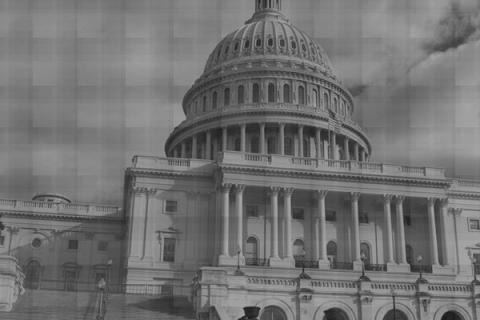
In an interview with ABC News, Kentucky US Senator Rand Paul confessed he is considering a presidential run in 2016:
"I want to be part of the national debate. I think it's a little too soon to talk about who's going to run, who's not going to run. . . . Am I interested in thinking about that? Yes. . . . I'm not going to deny I'm interested."
It's a little wishy-washy, but neither is it surprising - we were hearing names of potential candidates as soon as Ohio was called for President Obama.
The problem with many of the names thrown out at this point for 2016 is that they are all relative newbies: Marco Rubio, Ted Cruz, Paul Ryan, Rand Paul, Bob McDonnell, Nikki Haley, or heaven forbid, Sarah Palin. Others include Jeb Bush, Chris Christie, and Bobby Jindal.
If any or most of these candidates in the first group run, there is a real risk that they will cancel each other out in the way the "conservative alternative" candidates did in the race to be the "not-Romney" (remember when Mitt Romney was unacceptably moderate?). However, if there's a noticeable difference between 2016 and the two previous cycles it's that there will be no clear "runner-up" in the way John McCain and Romney were.
The possibility of Rand Paul running for president in 2016 is tantalizing for many who supported his father, Ron Paul, in the last two cycles. There is going to be a lot of interest and pressure for Rand Paul to run because four years after Ron Paul's retirement may be the best chance to hold the tenuous coalition together, a coalition that to date has not won the popular vote in a single presidential primary state. A Rand Paul candidacy holds the possibility of peeling off religious and fiscal conservatives from other candidates in a way Ron Paul never did, but with a field likely to be crowded, it isn't an inevitability either.
So far Rand Paul has held up fairly well in the US Senate. He's not been an explicitly "Ron Paul Republican," but he has taken important stands to hold up extensions of the Patriot Act, indefinite detention, and to cut off foreign aid to anti-American regimes as well as bringing much-needed attention to the ways Washington bureaucrats abuse and infiltrate Americans' lives. In my ideal world, he would advocate cutting off all foreign aid - including to Israel - and be a little more strictly realist or non-interventionist in his foreign policy statements. Senator Paul hasn't ruled out all foreign aid, which is a piddly issue anyway, but in the big picture he's also been a lot more pro-liberty and mindful of the Constitution than practically any other US Senator.
But Rand Paul has electoral issues to deal with before he runs for president. Like fellow presidential prospect Marco Rubio, 2016 is not just a presidential election year, but the year for re-election to the US Senate. Paul's approval rating in Kentucky is decent, about 53%, but it's not a foregone conclusion that Kentuckians will enshrine him in the US Senate either.
Short of a scandal or a major deviation from conservative orthodoxy, Paul isn't likely to face a primary challenge in 2016 and with Paul family operative Jesse Benton working on Mitch McConnell's re-election team, it appears the two Kentucky US Senators are willing to coexist.
In 2016, the Democrats may have some strong options for an opponent and just because Kentucky consistently votes for Republican presidential candidates doesn't mean the Bluegrass State is exempt from sending a moderate-sounding Democrat to Washington.
Two Kentucky Democrats the party may encourage to run are Governor Steve Beshear and soon-to-be-former congressman Ben Chandler. Beshear, who made a spirited run against McConnell in 1996 and whose term as governor expires in 2015 after two convincing victories, will be free to challenge Paul, but he will also be over seventy years old.
Chandler is Kentucky royalty: the grandson of former governor, US Senator, and baseball Hall-of-Famer "Happy" Chandler. But Chandler, who in 2011 predicted Paul would be "ripe for the picking," lost the last statewide election he was in and he just lost his congressional seat to Republican Andy Barr, but as a big name in Kentucky, his vote for ObamaCare may very well be ancient history by 2016. There's no guarantee either will challenge Paul, but there are political realities that must be tended to at home before the Ron Paul coalition hitches onto the Rand Paul presidential bandwagon.
We also simply don't know where the American electorate will be in 2015 when candidates are declaring themselves. It'll be the end of the second term of a president who served less than a full term in the US Senate and only a couple of State Senate terms before that. If the last of the luster has rubbed off Obama, there may be reluctance for either party to nominate a relatively untested candidate.
Republicans have spent much of the last four years critiquing Obama as too inexperienced when he came into office. This isn't a problem unique to Paul, but if what's described above is the political environment in 2015-2016, how does that candidate credibly justify his campaign having completed only one term, or less, in the US Senate or as governor when America is finishing up a, potentially, disconsolate two terms with a relative neophyte?
A Rand Paul presidential candidacy may very well be a good enterprise. If he continues on the track he's begun he would be a huge boon to the Republican field, but there are other factors to consider. A crowded field is undoubtedly one of them and inexperience another. There's no certainty that would face strong opposition anyway, but it would be an unqualified shame if in waging a doomed presidential campaign Rand Paul lost the platform he's had to explicate his agenda, his US Senate seat.
